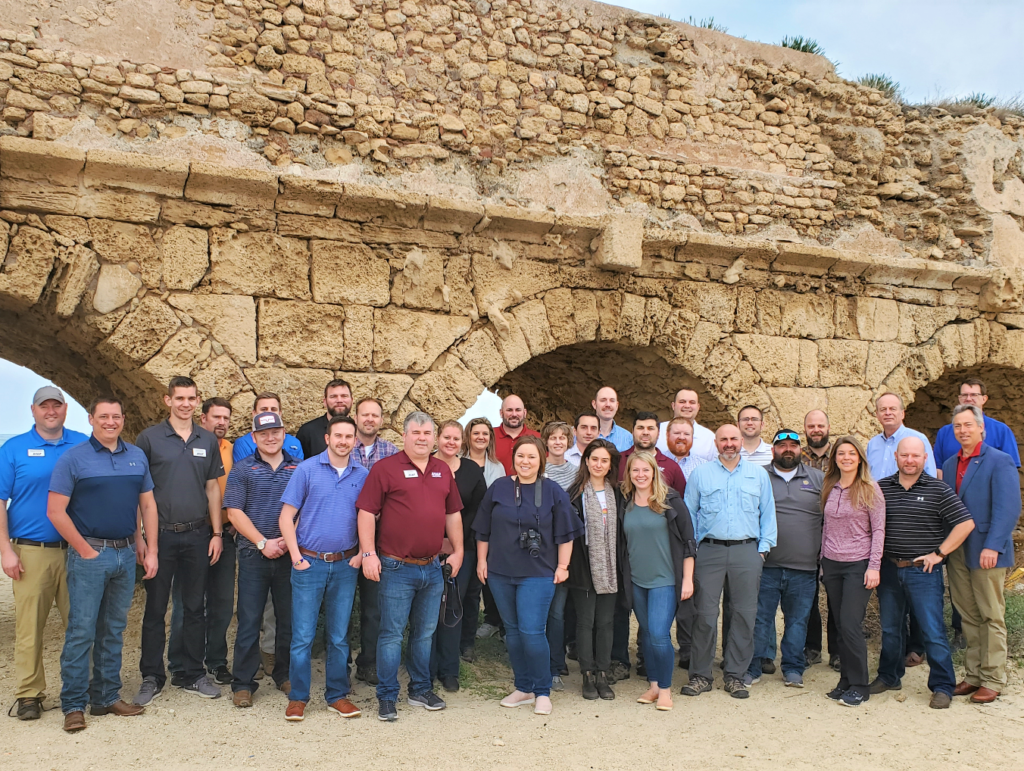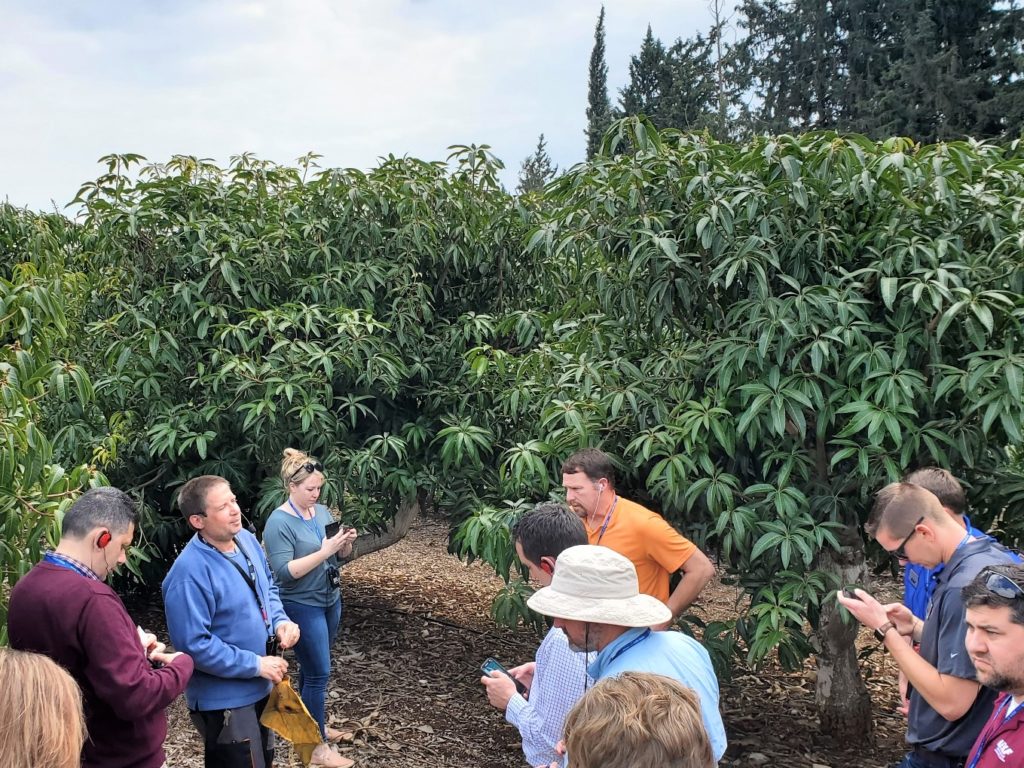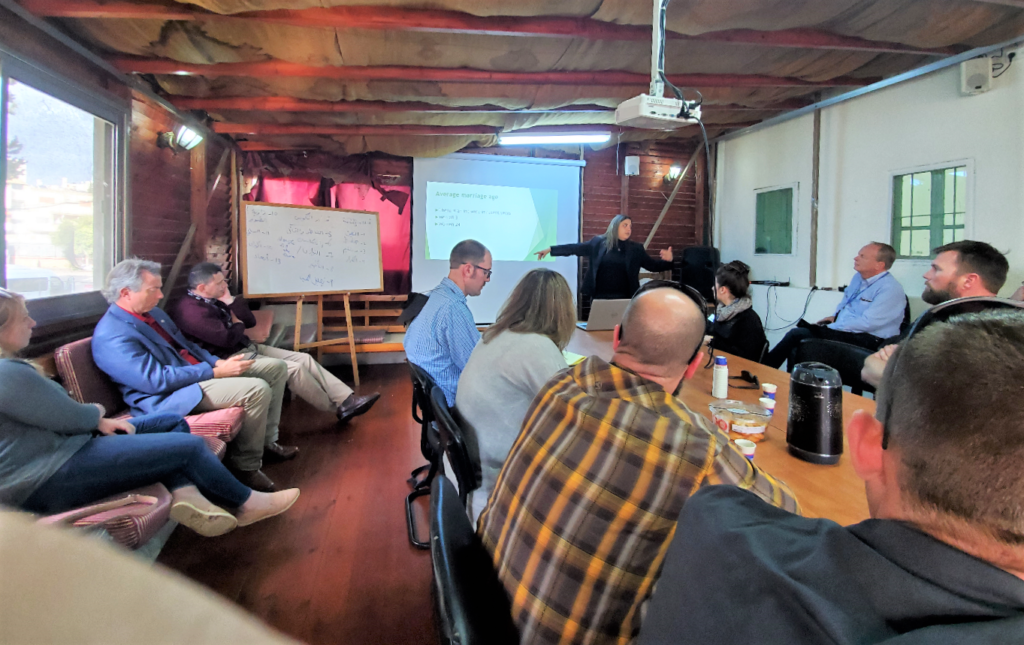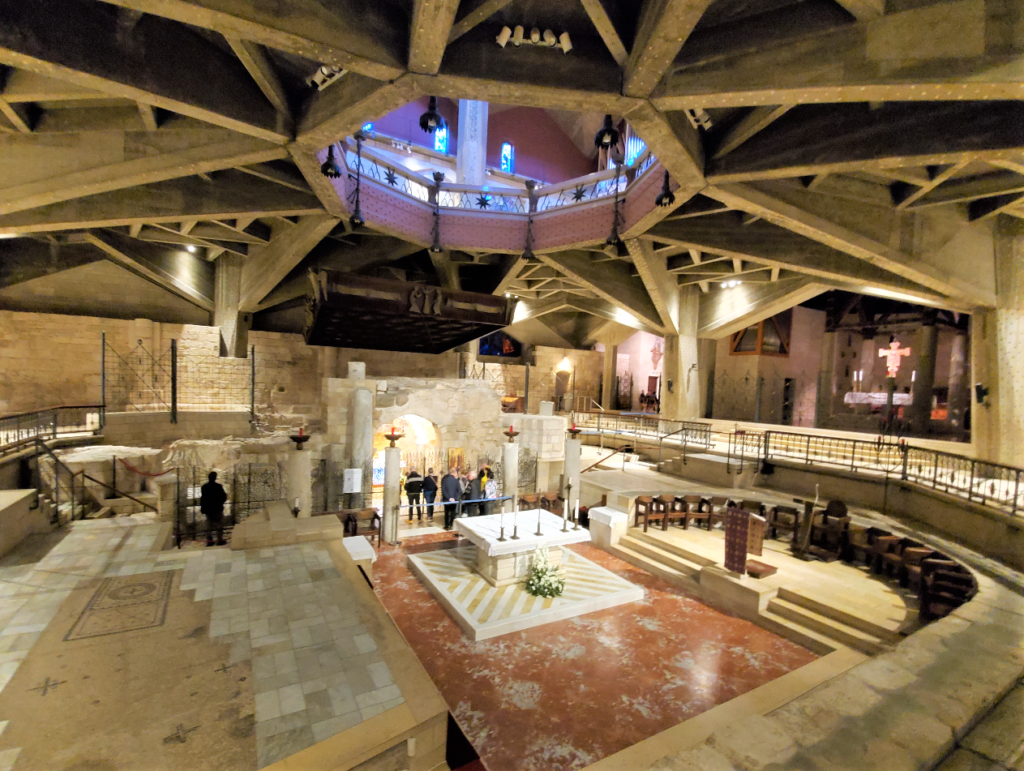Jack Powers, Mike Schweitzer, and Caleb Shull – Presiding Fellows
On our second full day in Israel, the Illinois Agricultural Leadership Program Class of 2020 headed north to the Sea of Galilee. On the way, we made a stop near Caesarea to look at the aqueduct along the Mediterranean Sea. The aqueduct was originally constructed by King Herod the Great in the first century and was doubled in size later in the second century. The aqueduct is gravity fed and was quite the engineering feat.

Our next stop was at the Kibbutz Hukuk overlooking the northwest section of the Sea of Galilee. We toured mango and avocado orchards which utilized complex drip irrigation and fertilization system. We also learned about their fruit fly management which consisted of only 4-12 traps per acre of orchard. The class also found it very interesting that new varieties could be grafted onto existing trees to leverage the established rootstock and multiple varieties could even be grafted onto the same tree rootstock. We next made a stop in their living area to learn more about their community. The Kibbutz is a tight community that shares the profits from farming and takes care of all the needs of the people. This particular Kibbutz was established in the 1940s and consists of 50 registered families and 100 younger families that are not registered but live on their property, which consists of 1000 acres of land. The last of the farm tours was to a propagation farm where they were starting several different fruit trees, including leechi trees.

Our last stop was in Nazareth, where we visited with a representative from ILAM, which is the Arab Center for Media Freedom Development. The speaker made us aware of the stark realities of the disparities between the Arab and Jewish societies, with several privileges (including property development rights) being given to Jewish societies. Other examples of struggles in the Arabic society within Israel include 4 times more violence than Arabs living in the West Bank, significantly fewer wages than Jewish workers, and significantly higher unemployment rates (especially for women with 40% of women with college degrees being unemployed). In summary, there are clearly civil rights issues that need to be addressed in Israel.

To close out the day, we visited a few religious sites in Nazareth. First, we visited the Basilica of Annunciation, where Gabriel spoke to Mary and where Jesus was conceived. The Franciscans have done an immaculate job of building the church over the historic location and it was quite the setting. We next visited the Church of St. Joseph, which was built over the house of Joseph where Jesus was raised as a child.


